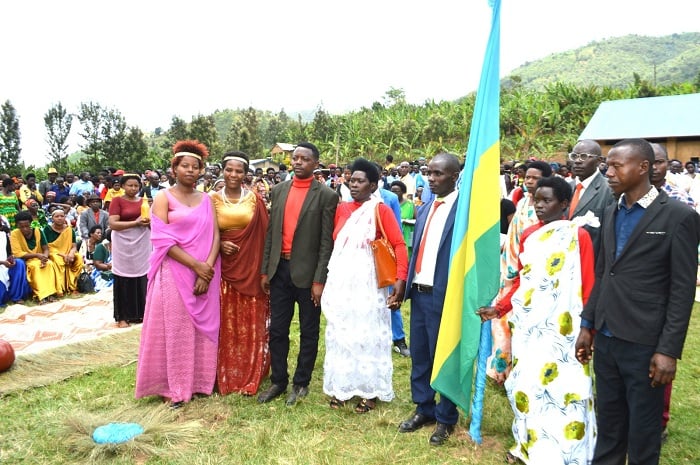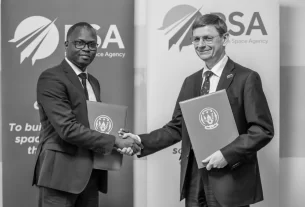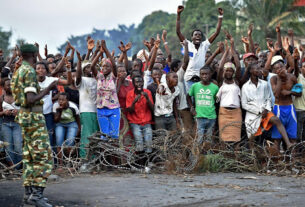The process of legal engagement is one of the things that women in Nyanza region appreciate about the way it is done by the local authorities, which makes them understand their rights more on property.
Mukeshimana is a woman from Nyanza. He says that where he was born, his mother and father were not legally married, but he grew up seeing the consequences, especially in the loss of rights to the property that his mother and father used to work for.
He said, “We were growing for many years, but my father could sell those years and sell them like a bull and my mother would not dare to ask him about the money he made or why he sold it, and he would drink it and disappear.”
He went on to say that this kind of life touched his heart and made him feel that he wanted to get married legally, because he attended many weddings of those engaged in the sector and he understood how there are ways in which the Rwandan constitution provides for determining marital relations and rights. both should own the property depending on how they choose to engage.
He said, “I am not engaged yet, I felt that I am not living with someone we are not legally engaged to and I felt that I will choose a mixed property because I felt that it is the best way according to what the local authorities explained and I really promised that my husband agreed and that is what happened.”
When asked why he felt that was the way he would choose, he said, “it is good, it is an agreement that the spouses agree to put together all their property, movable and immovable as well as their debts.”
He says that in this agreement each of the spouses has the same rights as the other and no one does anything without consulting the spouse. It also helps them in their relationship with their spouse.
Mukeshimana also praises the local institutions for teaching and training women in knowing their rights, especially when preparing for marriage.
Mukarusagara says that due to the deep understanding provided by the local authorities, especially in the contract, women who are now starting households know their rights and the law on the protection of their children.
He said, “What you have promised and the nature of the contract you made is what can be used in the event that one violates the other. Women help us because we are mostly the ones who face the problems.”
Kayitesi Nadine, who is in charge of equality and women’s development in the Nyanza region, says that from the village, cell and all levels, they are campaigning especially for women in order to explain their rights to them because they are the ones who are often abused by men.




